Losing your religion
Once numbering in hundreds, Hindus of Buner face the decision to choose between their history or their lives
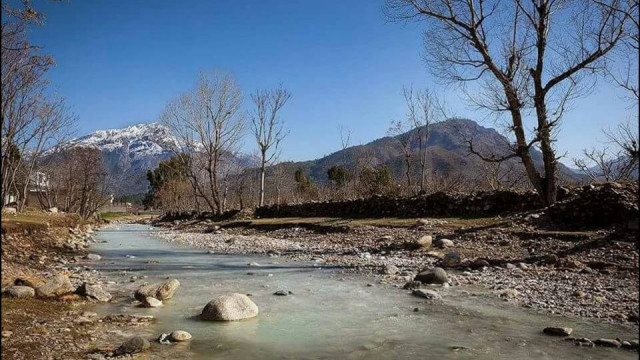
Elum Mountain: Courtesy ELUM MOUNTAIN FACEBOOK
According to the Hindu belief their god, Ramchandra spent time meditating there while on binbas (pilgrimage) so it is a religious practice of theirs to visit the site every year in June. A few years ago their numbers would be in the hundreds, now the count has dwindled somewhat, though the site is still seen as holy.
New gas reservoir discovered in Buner
Jogian Sar means the peak of the Jogies or Yogi’s and has been named so due to the few Hindu Sadhus (monks) who choose to meditate and remain on the site all year round. Upon this sacred mountain top there are remains on ancient temples and a man-made pool carved entirely out of solid stone, here rainwater is collected from the heavens and for the Hindus this water is holy.
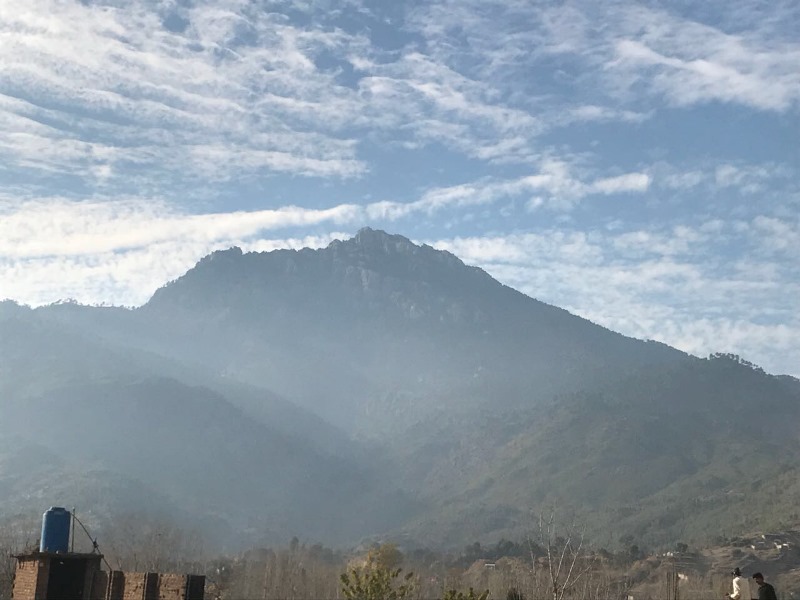
Below the peak flows a natural stream of water which runs ice-cold in the hot summers, and warm in the winters and this benevolent body of water, like all of Elum Mountain, also holds religious significance for the community. 1947 and the Partition of the Subcontinent, however, altered the fate of Elum Mountain.
For followers of either religion, Partition meant surrendering some of their beloved ancient and holy religious sites behind a new border, perhaps never to be seen again.
This was seen in Khyber Pakhtunkhwa (KP) and the Federally Administered Tribal Areas (FATA) when almost every Hindu residing there migrated en masse towards the newly amputated India, thus abandoning some of their most sacred and significant shrines forever.

The former princely state of Swat in the north of Pakistan still hosts a small Hindu community. Before the Partition, Hindus and Sikhs were part of the upper middle business class of society but the number of the Hindu community has since dwindled as many of them have converted to Sikhism or Islam or migrated to India.
Buner, Shangla and Swat were part of Swat state and when it was dissolved in the 1960s (probably 1967), the Hindu population has seen a decline mainly due to conversion to Sikhism and partly to migration to India due to financial reasons as they are no more the only traders in the area like the past and they see greener pastures in India.
However, there still remains a small community of Hindus in Buner District.
“For Muslims there exists a stereotype regarding the Jogian Sar, as they believe that because this is a site of Hindu ruins or that there are ancient dwellings of Hindu heritage here, there must be buried treasure by default. But this place is genuinely the Ram Takht of the Hindu belief. Our Rama, while on his binbas, chose this site and meditated and stayed here stayed on the top of the Elum Mountain. It is a sacred place for us,” said Bansri Lal, a local of Hindu faith from Cheena village in Buner.
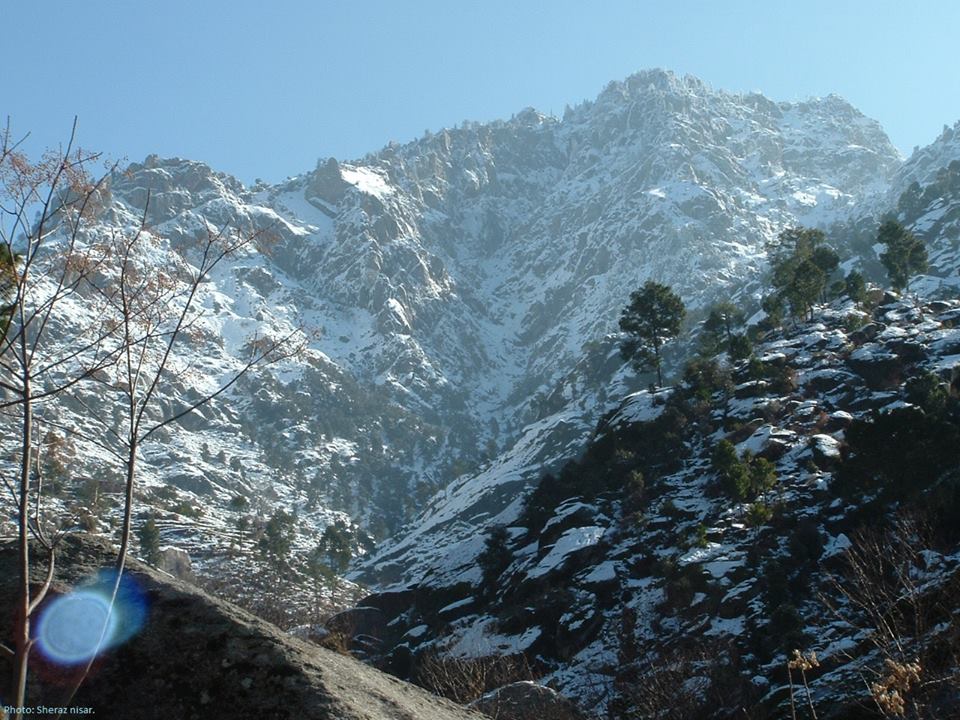 Elum Mountain: Courtesy ELUM MOUNTAIN FACEBOOK
Elum Mountain: Courtesy ELUM MOUNTAIN FACEBOOKLocally both Sikh and Hindus are addressed as Seth (sir) by the villagers and most of the local villagers are either unaware or unaffected that they practice religions different from theirs.
Today, hardly six or seven families following the Hindu belief remain in the Swari area of Buner. Most of them have been traders for centuries but some have also joined government service as well as gone on to be school teachers.
Buner admin restricts entry of trucks
“My father had settled in Rustam, Mardan in KP, where he was a shopkeeper and merchant but after the Partition he moved to the Buner District where most of the Hindu and Sikh community was. He opened a shop in Pir Baba and had our homes in Cheena village. We have moved again, this time to Sawari, which has emerged as the most commercially successful marketplace in the district. We have shops here and have bought houses in the vicinity,” said Bansri Lal, speaking to the Express Tribune.

“Basically our mother tongue is Hindko (etymologically meaning ‘Mountains of the Indus’ and one of the ancient languages of the region) and we have preserved it with great love and strict discipline throughout the generations for all these years. We probably identify with being Peshawari Hindus by origin as we are not from any part of India,” he said, adding that he had four children: two daughters and two sons.
“My eldest is studying at Jinnah College in Peshawar and her three younger siblings are studying locally as they are still school going kids,” he said.
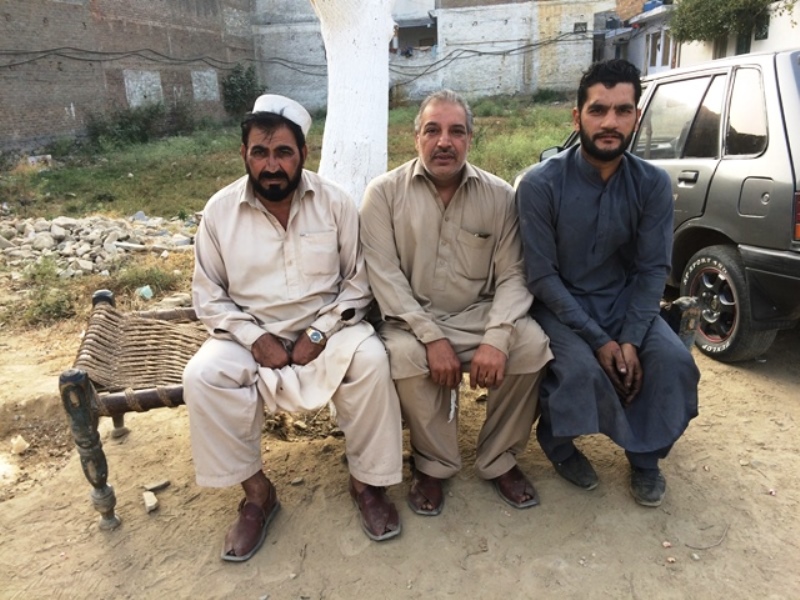
“As we have shifted our home several times and due to the fact that there are no communal Hindu temples in this area, our temples are accommodated for within our own homes and anyway, it is traditional for every house to have a corner dedicated to worship.
Yes, we take pride in our faith, but we are not very religious people and possess no profound knowledge of it per se. I hope God will forgive me for my ignorance as I have lived my whole life among and with the Muslims,” he said, adding that they themselves were not very different from the local Pashtun people culturally but their Hindko, was different from the Hindko that other speakers identified with and that was spoken in Peswhawar or Kohat or other parts of the province.

“Before Swat was plagued by militancy and uncertainty, we would journey towards the Elum Mountain for prayers every year. This was before any of the roads were built, now one has been constructed right next to Elum Village on the mountain, but it still takes over seven hours to climb the heights and reach the Ram Takht,” he said. With the increasing security risks in Swat he added, local Hindus were now afraid to make the annual pilgrimage to the sacred site of Ram Takht.
“The tradition requires spending three days and nights on the Ram Takht in the monsoon season and perform your pat (atonement or penance) as well as recite from holy Hindu scriptures,” Bansri Lal said. He himself owns a technical and electronics shop in the Sawari bazaar area, his brother Sita Ram owns and manages a textile and fabric store and his cousin Wanesh Kumar has a grocery store nearby. “There are around 10 families in the Buner district that make up the Hindu community,” he said.

“Buner is our motherland and I can’t imagine leaving it for India or any other city,” he said. “Being Pakhtun is so ingrained in our beings and everyday life. Let me give you an example, once, after a day in Lahore I was waiting by the roadside to hitchhike, at around midnight to a nearby hotel. A vehicle stopped and the driver was kind enough to offer us a ride to such a place. We accepted it gratefully. However when my family and I conversed with each other in Pashto our driver became extremely hostile. He stopped the car and roared that he would not take any Pashtun anywhere in his car. Even when we explained that we were Hindu, his decision and bias was immovable.
“‘Hindu or Muslim I will not allow any Pashto speaking man in my vehicle,’ were his last words,” said Bansri Lal while recalling the event.
He also informed this reporter that two decades ago the Hindu community in Buner was much larger than now, but that most of them had converted to Sikhism.
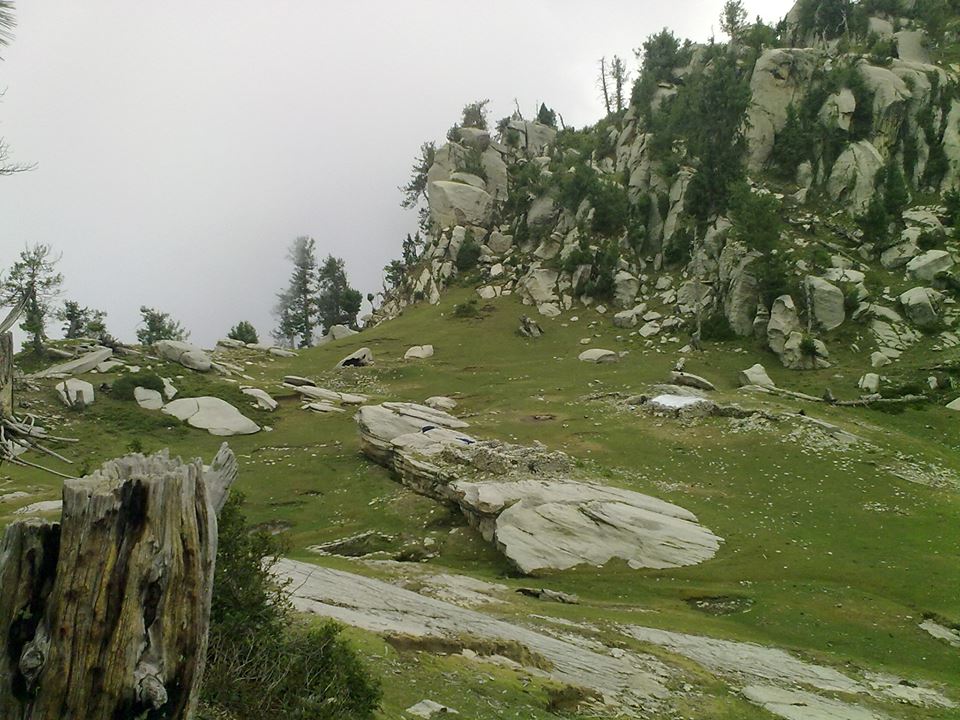 Elum Mountain: Courtesy ELUM MOUNTAIN FACEBOOK
Elum Mountain: Courtesy ELUM MOUNTAIN FACEBOOK“I think that Sikhism is simpler to understand and practice when compared to our Hindu dharm (belief/practice) that is why most of that faith have converted to Sikhism and today there are very few Hindu families left behind,” he said.
Faqir Chand Arshad Ghori, popularly known as Ghori Chacha, is a 60 year old Hindu who has been living in Sawari for the past 25 years. His expertise is truck mechanism and hails from Bannu district of KP. His father was a pandit (scholar of the Hindu religion) which Ghori Chacha benefits from still. He is a popular man among the local Hindu community because of his experience and knowledge of the religion.
“My family was basically living in Bannu which – along with Dera Ismail Khan and Kohat – was considered the main hub of the Hindu community in the province, before the Partition,” Ghori Chacha said.

As a mechanic, he had worked in South and North Waziristan which was dangerous for any outsider, but after being robbed of his life savings, he had no choice but to leave his former home in Bannu and settle in Buner where he lives in a small rented house.
“I’ve established a workshop here and live a good life. People are friendly but due to my ailing health I can’t work anymore.” Of his three sons, one is settled in Malaysia while another works as a tailor and another as a clerk in the local government.
“We need a public and communal Hindu temple because the younger generation is growing up without knowing their religion. A school that recognizes and celebrates the needs as well as the differences of religious minorities, as well as a quota for minority students at universities is sorely needed. This carries over for minority representation in health,” said Ghori chaha, and that in Sawari their community made up of 20 registered votes.
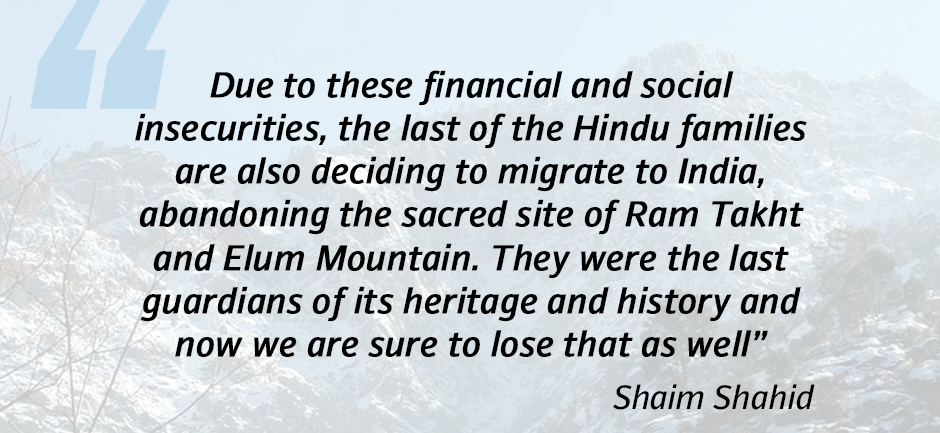
“We have held on to our religion that is Ved Sanathan (from Vedas meaning principles and Sanathan meaning eternal) and our language of Hindko, but culturally we are Pakthuns through and through. The only difference between us and the locals is that we do not eat beef.
“One corner of my home has been converted into a small temple which is devoted to worship and the study and meditation of my religion,” he said, adding that there was no idol and he had simply used a few holy pictures to establish this temple.
Police official gunned down in Buner
Shaim Shahid, a journalist from Buner told Express Tribune that in the surrounding villages it was mostly the Hindus and Sikhs who were merchants and shopkeepers and that this was their forte.
“This is on a decline now as local villagers have also become more enterprising and opened their own stores and shops. The already small Hindu and Sikh community is facing competition which has lessened their monopoly on trade, somewhat.
“Due to these financial and social insecurities, the last of the Hindu families are also deciding to migrate to India, abandoning the sacred site of Ram Takht and Elum Mountain. They were the last guardians of its heritage and history and now we are sure to lose that as well.”
“Because of this some of the Hindu families have migrated to India leaving their ancestral villages behind,” he said.












COMMENTS
Comments are moderated and generally will be posted if they are on-topic and not abusive.
For more information, please see our Comments FAQ